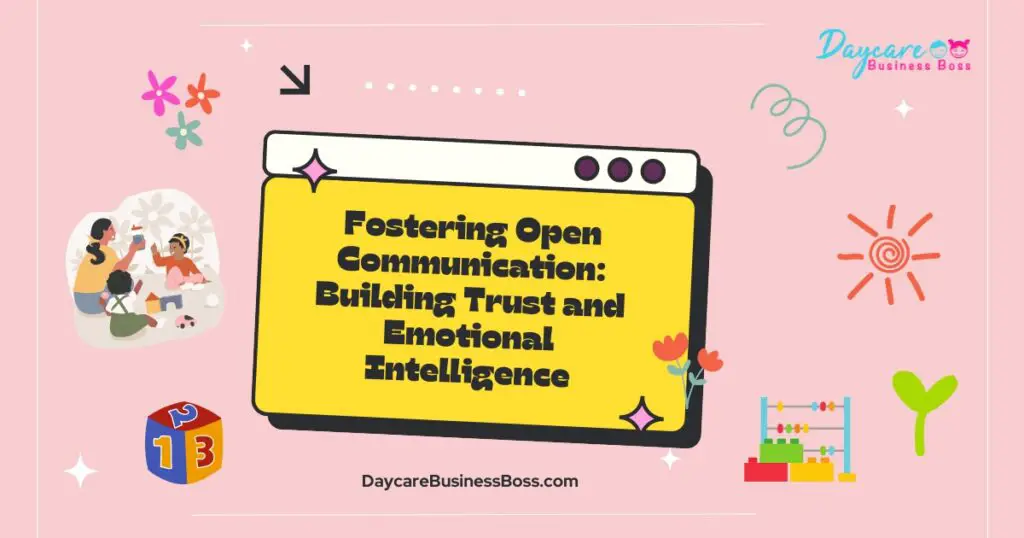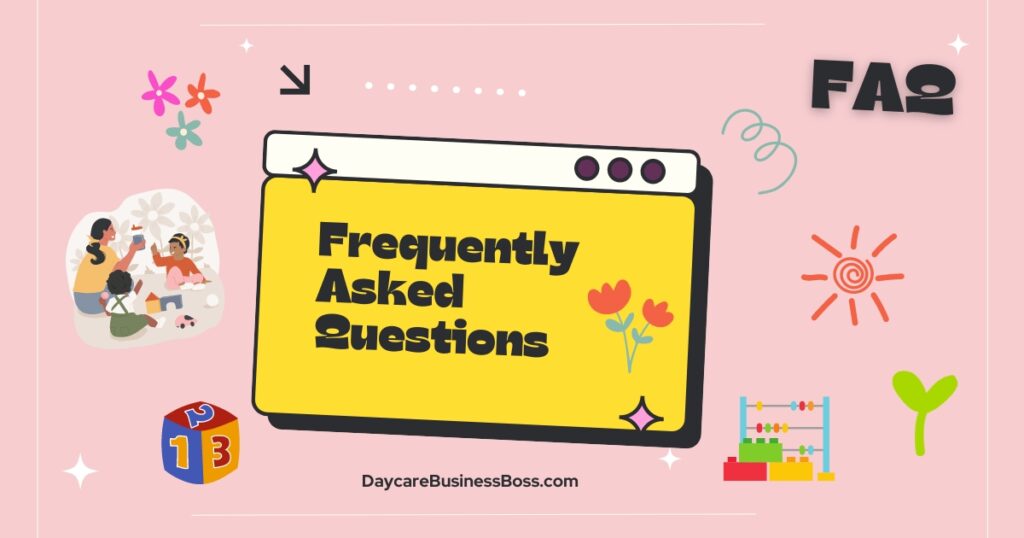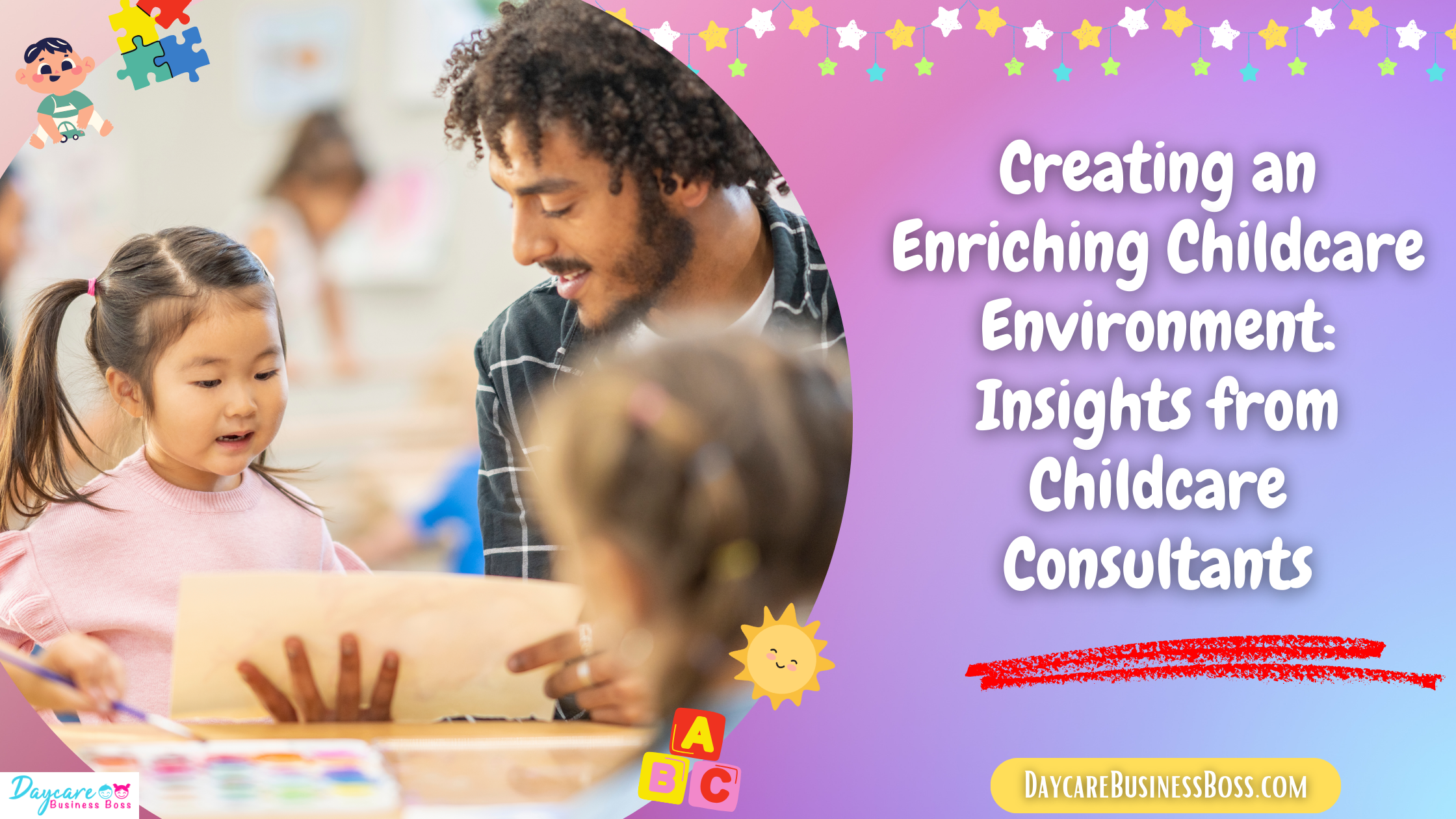A childcare consultant’s profession has developed as a vital light of direction and support in the ever-changing world of modern parenting. Childcare experts have stepped into the spotlight, armed with a wealth of information and skill, with the awareness that caring and enriching a child’s early years builds the groundwork for their future growth.
The most useful advice from childcare consultants includes setting consistent routines, providing age-appropriate toys, fostering open communication, and engaging in interactive activities that stimulate learning and social skills.
Setting Consistent Routines: Building the Backbone of Stability
Childhood is a formative period marked by tremendous growth and development. The formation of stable routines emerges as a crucial component in fostering children’s physical, emotional, and cognitive well-being during this transitional age. Childcare advisors who are well-versed in the complexities of child development strongly emphasize the enormous impact that routines may have on a kid’s life.
Childcare professionals emphasize the importance of routines as the foundation of a child’s existence. These experts know that routines are more than just schedules; they are an important tool for producing stability and security. The rhythmic cadence of regular bedtimes, mealtimes, and playtimes benefits a child’s overall well-being enormously. The modulation of sleep patterns, gastrointestinal processes, and energy levels corresponds to the body’s natural rhythms, promoting optimal growth and development.
Routines’ pragmatic role extends into the emotional sphere. Routines, according to childcare professionals, offer predictability and structure, reducing anxiety caused by the unexpected. Children find comfort in regular patterns inside the embrace of a well-organized routine, and this familiarity translates to a heightened sense of security. The ability to anticipate what will happen next and comprehend the course of their day fosters an environment of emotional reassurance. Routines also provide children with a way to deal with expectations and transitions. Routines reduce the anxiety that is often linked with change, from shifting from playtime to naptime to understanding the flow of the day.
Read more about: Childcare Business Navigator: Essential Management Coursework
Providing Age-Appropriate Toys: Fueling Curiosity and Creativity
Childcare advisors, armed with a thorough grasp of childhood development, emphasize the critical role of age-appropriate toys in molding a child’s educational journey. Toys transcend their materiality in the arena of child development; they transform into instruments of exploration, avenues of imagination, and stepping stones for skill-building. Consultants actively advocate for the careful selection of toys that match a child’s current developmental stage, orchestrating a stimulating symphony of learning and play.
The essence of the consultant’s guidance is the knowledge that toys have extraordinary potential to impact a child’s development trajectory. Parents create an atmosphere that fosters engagement and progress by adjusting toy choices to a child’s age and developmental stage. The effectiveness of age-appropriate toys is based on their ability to achieve a balance between captivating and challenging. The combination of these characteristics fosters an environment of curiosity, encouraging youngsters to explore and experiment while also improving their talents.
From infancy to the early years, the range of age-appropriate toys is as broad as a child’s ever-changing demands. Sensory toys emerge as portals to a world of textures, colors, and sounds for the youngest minds, activating the senses and creating the groundwork for sensory-motor integration. Consultants frequently praise the merits of puzzles and building blocks when youngsters enter their toddler years. These toys are cognitive puzzles that encourage children to solve spatial riddles and engage in critical thinking while also developing fine motor abilities through manipulation and assembly.
The enchantment of age-appropriate toys extends beyond developmental enhancement to include creativity and problem-solving. These toys encourage youngsters to see problems as possibilities, promoting an exploratory and experimental mindset. The process of putting together a puzzle or building with blocks promotes endurance, patience, and a sense of achievement.
Fostering Open Communication: Building Trust and Emotional Intelligence

Even in the hallowed world of parent-child connections, good communication emerges as a cornerstone in the delicate dance of relationships. Childcare advisors who are well-versed in the complexities of child development passionately advocate the inherent value of clear and open communication between parents and their children. This deep emphasis on communication goes beyond words; it forges bonds laced with trust, empathy, and emotional security.
Childcare consultants’ advice emphasizes the critical function of communication in cultivating a child’s emotional landscape. Encouragement of children’s thoughts, emotions, and concerns fosters a safe sanctuary of trust and emotional well-being. When children believe their opinions are valued and respected, they develop a sense of emotional safety, allowing them to freely navigate their inner world and express their experiences without fear of being judged.
Parents that actively engage in their children’s communication and embrace the advice of experts nurture the seeds of emotional intelligence, empathy, and self-assurance. The act of actually listening, absorbing not only words but also unseen nuances, fosters empathy, which is a necessary component of effective relationships. Children learn the crucial ability to recognize and express emotions from their parents’ attentive responses, laying the groundwork for emotional literacy that will serve them for the rest of their lives.
Consultants frequently advocate for the creation of specific conversation moments, which create the stage for profound connection. A sacred space for expression is created by allocating time when parents and children can engage in meaningful talks without being distracted by the demands of the outside world. Parents give their complete attention at these golden times, giving a powerful message that their child’s views and experiences are worthy of time and concern.
Engaging in Interactive Activities: Learning Through Play and Exploration
Play, the spontaneous symphony of childhood is a language that transcends words and speaks to every child’s heart. Childcare advisors who are sensitive to developmental cycles reveal the rich mine of learning that exists inside the realm of play. Beyond the surface delight, interactive activities emerge as conduits for holistic growth, fostering a child’s physical, cognitive, social, and emotional qualities.
Childcare consultants recognize the immense power of interactive activities as catalysts for diverse development. These activities go beyond simply amusement; they help to sharpen cognitive abilities, fine-tune motor capabilities, and promote the fundamental building blocks of social interaction. Children’s horizons broaden and abilities develop via a tapestry of activities ranging from making and creating to outdoor adventures and the enchantment of pretend play.
Consultants recommend diverse and interesting interactive activities to spark curiosity and creativity. Children engage in journeys of discovery by navigating the contours of art, nature, imagination, and exploration. Each of these activities not only stimulates the mind but also plants the seeds of problem-solving, collaboration, and self-regulation. Children learn the ability to traverse barriers, communicate with others, and manage their emotions as they immerse themselves in the challenges that these activities bring.
Beyond skill acquisition, interactive play becomes a portal to self-discovery and empowerment. According to childcare experts, these activities help youngsters identify their interests, discover their abilities, and create a healthy self-image. Children step into roles where they create, lead, and triumph, whether they are building a fort out of cardboard boxes or engaging in imaginative role-play. This experience fosters a sense of accomplishment, boosting self-esteem and instilling confidence in future undertakings.
Read more about: Revolutionizing Childcare: Innovative Daycare Business Ideas for Holistic Growth
Stimulating Learning and Social Skills: The Synergy of Interactive Activities
The tapestry of childhood is laced with threads of curiosity and limitless inquiry, qualities that childcare consultants enthusiastically celebrate via the portal of interactive activities. These activities, which are loved for their dual impact on learning and social development, are well aligned with the intrinsic tendencies of young minds. As seasoned interpreters of child development, childcare advisors easily grasp the enormous resonance that interactive activities carry.
Interactive activities operate as dynamic catalysts, propelling youngsters into areas of cognitive development. Childcare advisors have noticed that children are naturally drawn to solving the mysteries of their surroundings. Activities that pique their intellectual curiosity and challenge their cognitive capacities promote the development of critical thinking skills. Memory retention and focus abilities are strengthened as students traverse the complexities of these exercises. The interactive nature of these activities encourages youngsters to accept obstacles and uncertainty, creating a mindset that values exploration and perseverance in the face of difficulties.
The orchestration of group play, a dynamic through which children connect, collaborate, and create relationships, is one of the most impressive aspects of interactive activities. Childcare advisors emphasize the importance of these encounters in the development of critical social skills. Participating in activities with peers encourages youngsters to share their opinions, listen to others, and seek common ground. The act of sharing resources, whether physical or conceptual, instills ideals of cooperation and empathy.
The social tapestry created by participatory activities serves as the foundation for future partnerships. Childcare professionals agree that these shared experiences help to build a strong foundation for good communication and happy connections. The skills woven into interactive activities create the core of lifetime communication capabilities, from learning to express thoughts clearly to actively listening and reacting intelligently.
Integrating Advice into Daily Life: A Holistic Approach
Childcare consultants’ pearls of wisdom provide a road map for building an enriching parenting journey. However, putting these insights into practice requires commitment and unflinching constancy. Armed with this vital counsel, parents begin on a transforming journey in which principles become practices and intentions become tangible deeds.
Parents can begin this transforming journey by creating a well-structured daily plan. Routines in daily life lay the groundwork for stability and predictability. A regular schedule fits with a child’s natural rhythms, supporting physical and emotional well-being by allocating dedicated slots for meals and sleep, as well as setting aside time for play and learning.
The deliberate selection of age-appropriate toys, in conjunction with routines, manifests as a cornerstone of the learning path. Parents can connect their toy choices with their child’s developmental stage and interests if they are informed by the insights of childcare specialists. This deliberate curation not only promotes enjoyment but also sparks curiosity and discovery, transforming play into a domain of limitless learning.
Another piece of advice from childcare professionals is to encourage open channels of communication within the family unit. Regular family meetings, backed up by a dedication to active listening and compassionate response, provide a dedicated forum for expression. These gatherings allow parents and children to express their views, feelings, and aspirations, enhancing the parent-child bond with trust and emotional connectivity.
However, the voyage does not end here; it continues into the world of interactive activities. Understanding their child’s preferences allows parents to plan activities that are not only instructive but also compelling and fun. This deliberate structuring of experiences ensures that learning becomes a pleasurable endeavor, reinforcing the child’s eagerness for discovery and growth.
Frequently Asked Questions

What are the benefits of consistent routines for children’s development?
Routines give children a feeling of regularity and structure, which is critical for their overall well-being. Routines help to manage sleep habits, food times, and play schedules, all of which promote physical wellness. Routines also help children comprehend expectations and transitions, which reduces anxiety and fosters a sense of control. Consistent routines promote emotional security and cognitive growth by providing stability.
What effect do age-appropriate toys have on a child’s learning journey?
Age-appropriate toys are essential for boosting a child’s cognitive, motor, and social skills. These toys are intended to correspond to a child’s growth stage, giving both fun and education. Children can improve their problem-solving skills, creativity, and critical thinking by playing with such toys. Age-appropriate toys also allow youngsters to explore their interests and build a good self-image, setting the groundwork for lifelong learning.
How can open communication improve parent-child relationships?
Open communication between parents and children fosters trust, emotional intelligence, and self-esteem. Encouraging children to communicate their views, feelings, and concerns fosters a secure and valued atmosphere. Parents’ active listening and responsive communication foster empathy and interpersonal skills in their children. As children develop into adults, this strong communication foundation supports good relationships, emotional well-being, and positive self-expression.
To learn more on how to start your own daycare checkout my startup documents here.
The information provided by DaycareBusinessBoss.com (“The Site”) is for general informational purposes only. All information on the Site is provided in good faith, however, we make no representation or warranty of any kind, express or implied, regarding the accuracy, adequacy, validity, reliability, availability or completeness of any information on the Site. Under no circumstance shall we have any liability to you for any loss or damage of any kind incurred as a result of the use of the Site or Reliance on any information provided on the Site. Your use of the Site and your reliance on any information on the Site is solely at your own risk.
This blog post is for educational purposes only and does not constitute legal advice. Please consult a legal expert to address your specific needs. Terms and Conditions. (https://daycarebusinessboss.com/terms-conditions/)

Meet Shawn Chun: Entrepreneur and Childcare Business Fan.
I’m a happy individual who happens to be an entrepreneur. I have owned several types of businesses in my life from a coffee shop to an import and export business to an online review business plus a few more and now I create online daycare business resources for those interested in starting new ventures. It’s demanding work but I love it. I do it for those passionate about their business and their goals. That’s why when I meet a childcare business owner, I see myself. I know how hard the struggle is to retain clients, find good employees and keep the business growing all while trying to stay competitive.
That’s why I created Daycare Business Boss: I want to help childcare business owners like you build a thriving business that brings you endless joy and supports your ideal lifestyle.

